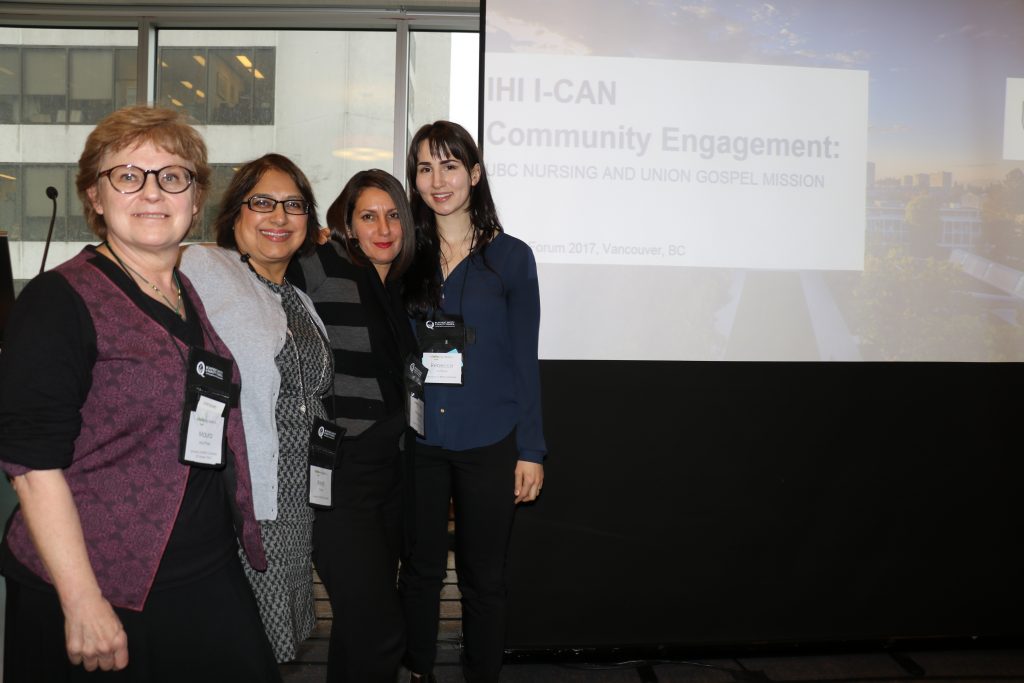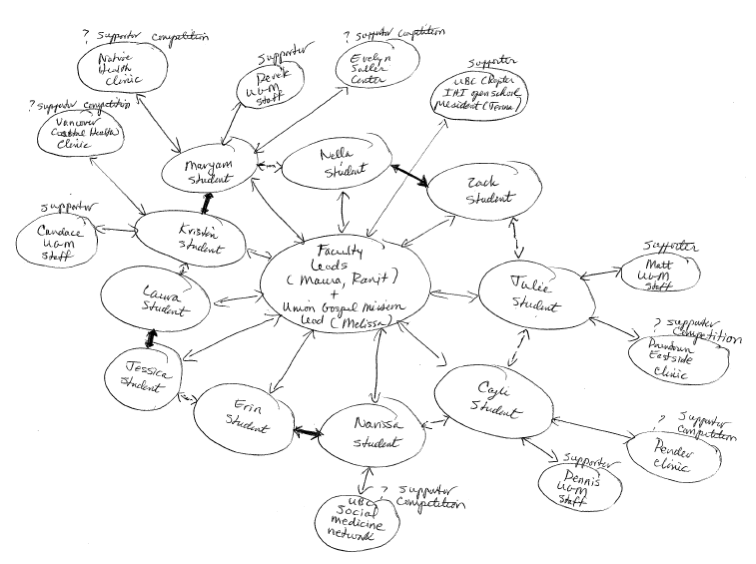By MARYAM KOOCHEK

Left to right: Dr. Maura MacPhee, Ranjit Dhari, Maryam Koochek and Rebecca Anthony. (Photo by Khristine Carino.)
The BC Patient Safety and Quality Council holds a Quality Forum once a year to showcase quality projects that are benefiting our patients and to raise awareness of initiatives that are being implemented to meet the demand for quality improvement. At this year’s event, the objectives were to:
Ignite action to improve quality of care for patients and providers;
Create and strengthen connections and collaborations across all areas of care; and
Share effective strategies and leading practices to stimulate and sustain improvement
These objectives were met through inspirational plenary presentations, from important figures in the healthcare community including the current provincial minister of health, Mr. Terry Lake; various interactive workshops, rapid fire presentations and field trips to organizations that are known for having complex operations such as the Port of Vancouver. The diversity in the mode of delivery and the topics discussed ensured that every attendee had plenty of opportunity to attend and learn about their area of interest.
Given my interest in community nursing and working with marginalized populations, I attended workshops on team-based care in the community, trauma informed practice, cultural safety and responding to a public health emergency: the opioid crisis in BC just to name a few. This last session struck me as especially inclusive of all the players in this crisis. There were three speakers, each with their own unique place within the crisis response management. The session began with Laura Shaver, the president of Vancouver Area Network of Drug Users (VANDU). Laura is a recovering heroin user who is currently on the methadone program and has been witness to the devastating loss of life that has resulted from illicit fentanyl on the streets. She is a powerful advocate for her community and having her at the session gave us a glimpse of the lived experience of those who are closest to the crisis. Dr. Christy Sutherland is the medical director of PHS community services society and she gave the audience an account of the daily challenges and the on the ground response from her team including setting up Naloxone tents in alleyways and working around the clock to meet the demands of this crisis. The third speaker was Dr. Bonnie Henry, the Deputy Provincial Health Officer for BC. She gave the audience an overview of what is being done at the provincial and federal levels to manage the crisis including working with Health Canada to open more safe injection sites; working with the the Border Agency to curb the entry of these substances from abroad and working with local agencies to put more resources in place.
I concluded the Quality Forum by presenting the student IHI I-CAN Quality Improvement Project with my colleague Rebecca Anthony. The presentation was very well received and showcased the amazing work of UBC students and our ever supportive faculty.
Attending the forum was inspiring and motivational and I would recommend every nurse to attend it. One of the lessons I took away from attending the forum is how well our program has prepared us for practice. I sat with nurse managers who had never heard of trauma informed practice or cultural competence. I feel that as soon to be graduating nurses, those fundamentally important concepts are forever embedded in our cells and that is partially due to the education and awareness we have received over the course of our training.
 Follow
Follow